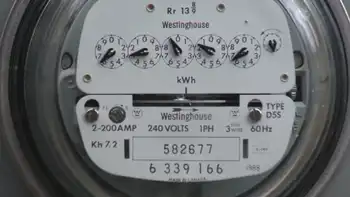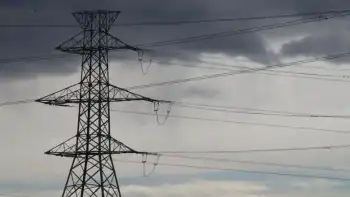Commission withdraws EV rule
It comes one week after an electric vehicle dealer sued the commission to block enforcement of the rule.
"They made a step in the right direction," said Roger Gaddis, owner of Ada Electric Cars, which sued the Tax Commission and its three commissioners to prevent enforcement of the rule.
Gaddis said the rule would prohibit buyers of his vehicles from claiming the electric car tax credit.
"They are going to make hundreds, if not thousands, of taxpayers in Oklahoma happy that they've taken the proper course of action and not tried to change the rules in the middle of the game," Gaddis said.
An existing state tax credit allows purchasers of electric vehicles to claim an income tax credit totaling 50 percent of the purchase price that can be spread over five years.
But the Tax Commission passed an emergency rule on September 17 that excluded electric vehicles whose bodies are similar to a golf cart or go-cart instead of a traditional passenger automobile. Also excluded were vehicles designed and manufactured primarily for sporting or recreational purposes.
Commission spokeswoman Paula Ross said the purpose of the emergency rule was to clarify the standards for qualifying for the income tax credit. However, commissioners felt it had not achieved its purpose.
Ross said applications for the income tax credit will be reviewed according to guidelines that were in place before the rule was adopted.
Gaddis said the rule would have prohibited owners of the golf cart-like electric vehicles he sells from claiming the tax credit this year and in subsequent years, despite the vehicles exceeding federal highway standards for street-legal cars.
The vehicles, manufactured by Tomberlin, have been licensed with the Oklahoma Motor Vehicle Commission for more than three years and were engineered to be street-legal, low-speed vehicles, Gaddis said. The most popular model with no accessories sells for about $8,500, he said.
"We are extremely pleased that they have reversed course and put back in place what legislators intended," Gaddis said.
He said he will meet with his attorney before deciding whether to pursue the lawsuit, which was filed September 23 in Garfield County District Court in Enid.
Related News

Nova Scotia can't order electric utility to lower power rates, minister says
HALIFAX - The province can't ask Nova Scotia Power to lower its rates to ease the financial pressure on out-of-work residents because it lacks the authority to take that kind of action, the provincial energy minister said Thursday.
Derek Mombourquette said he is in "constant contact" with the privately owned utility.
"The conversations are ongoing with Nova Scotia Power," he said after a cabinet meeting.
When asked if the Liberal government would order the utility to lower electricity rates as households and businesses struggle with the financial fallout from the COVID-19 pandemic, Mombourquette said there was nothing he could do.
"We don't have the…




